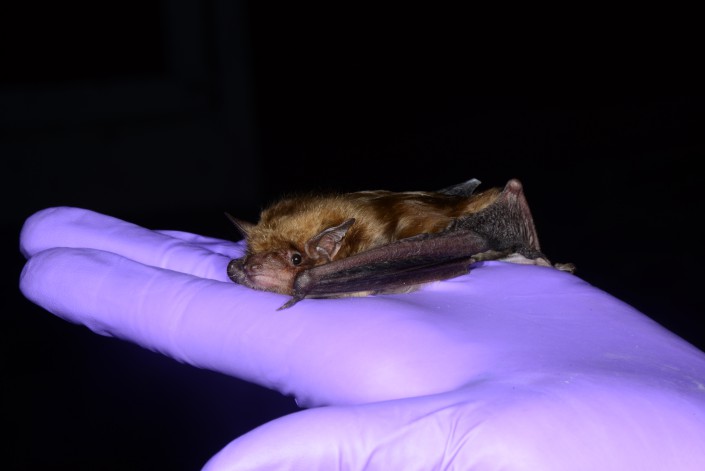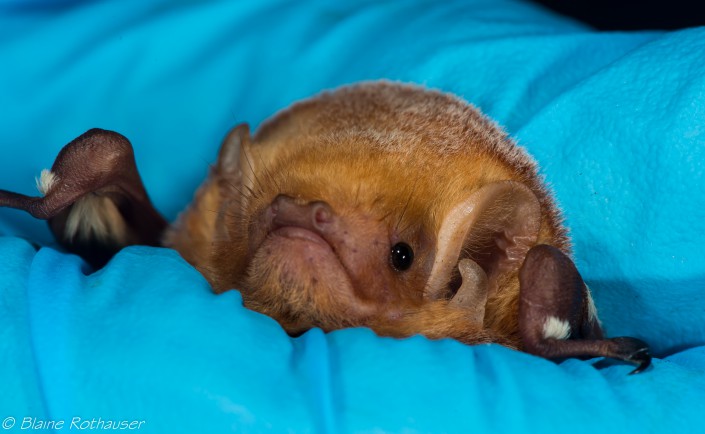Halloween and Bats
Spooky or Beneficial?
by Stephanie Feigin, Wildlife Ecologist

It’s that time of year again, the days are getting shorter, temperatures are dropping, and creatures of the night are lurking behind shadowy corners. As Halloween approaches one animal comes to the forefront of everyone’s mind – bats.
For most people, the connection between the spookiness of Halloween and bats is a natural fit. Bats are elusive creatures of the night that hide in dark spaces, and they live secretive lives leaving us in fear of their actions.
Bats have been misunderstood by humans for many years, and are still among the most persecuted animals on earth. In many parts of the world, bats are killed due to fear or harmful myths that make them seem scary or even dangerous.
To me, however, that connection does not seem like a natural fit. Bats are one of the most beneficial animals to humans. They can eat thousands of insects in one night, protecting our crops and forests from insect destruction. They pollinate many important foods that we love and are worth millions of dollars to U.S. agriculture alone.
Though tying bats with the Halloween season gets the general public thinking about bats for almost a full month, I prefer to think of bats every day. I like to think about them on a warm summer night when I am outside not being bit by mosquitoes, or when I am eating some of my favorite foods, like chocolate and bananas, that are pollinated by bats.
Sadly, however, due to the many threats that bats face today, we have lost a significant amount of our bat population nationwide. The continued loss of these animals will have drastic effects, including increasing the demand for chemical pesticides, and we will be losing a key link in our ecosystems that is irreplaceable.
This is why it is important that we work to love the bats we still have for all of the benefits they provide. We need to remove the spooky stigmas that surround bats and show them off in a new light, because to me the scariest thing would be a world without bats.

And they really are pretty cute.
Learn More:
Stephanie Feigin is the Wildlife Ecologist for Conserve Wildlife Foundation of New Jersey.
Discover more from Conserve Wildlife Foundation of NJ
Subscribe to get the latest posts sent to your email.